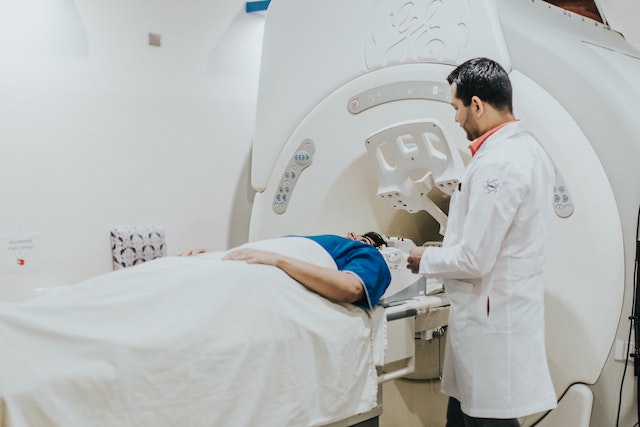In the ever-evolving landscape of medical advancements, the integration of MRI scans in the realm of prostate cancer diagnosis has emerged as a groundbreaking approach that could significantly lower mortality rates. Prostate cancer, one of the most prevalent forms of cancer in men, has seen significant progress in terms of detection and treatment options. The introduction of MRI scans has added a new dimension to the fight against this disease, enabling early detection and subsequently reducing mortality rates.
MRI Scans: A Window into Precise Diagnosis
Magnetic Resonance Imaging (MRI) scans have revolutionized the way healthcare professionals visualize and diagnose medical conditions. This non-invasive imaging technique employs a strong magnetic field and radio waves to generate detailed images of the body’s internal structures. When applied to prostate cancer detection, MRI scans provide a high-resolution view of the prostate gland and surrounding tissues. This level of precision allows medical experts to identify cancerous growths at an early stage, increasing the likelihood of successful treatment.
Advantages of MRI Scans in Prostate Cancer Detection
- Early Detection: One of the key factors contributing to the success of any cancer treatment is catching the disease in its early stages. MRI scans excel in identifying small tumors and irregularities that might go unnoticed with traditional screening methods.
- Accurate Staging: Accurate staging is crucial for determining the extent of cancer’s spread and planning appropriate treatment strategies. MRI scans offer detailed information about the size and location of tumors, aiding clinicians in making informed decisions.
- Reduced Need for Biopsies: Prostate biopsies, though essential for confirming cancer diagnosis, can be uncomfortable and carry risks. MRI-guided biopsies are a less invasive alternative that targets suspicious areas precisely, reducing unnecessary procedures.
- Personalized Treatment: With the detailed insights provided by MRI scans, medical professionals can tailor treatment plans to each patient’s unique condition, ensuring optimal outcomes.
Transforming the Prostate Cancer Landscape
The integration of MRI scans into prostate cancer diagnosis has not only improved the accuracy of detection but has also transformed the way healthcare providers approach this disease. By enabling early identification, healthcare professionals can intervene at a point where treatment options are more effective, potentially leading to a decrease in mortality rates.
As this advanced imaging technique becomes more widely available, individuals at risk of prostate cancer are encouraged to discuss the option of MRI scans with their healthcare providers. Open communication and proactive screening are vital in the battle against this formidable disease.
In Conclusion
The inclusion of MRI scans in prostate cancer screening marks a significant leap forward in the field of healthcare. By offering precise imaging, early detection, and personalized treatment strategies, MRI scans have the potential to substantially reduce mortality rates associated with prostate cancer. As technology continues to advance and medical research progresses, we can anticipate even more promising developments in the fight against this disease. In the quest for a healthier future, embracing innovations like MRI scans proves to be a crucial step towards saving lives and enhancing overall well-being.












